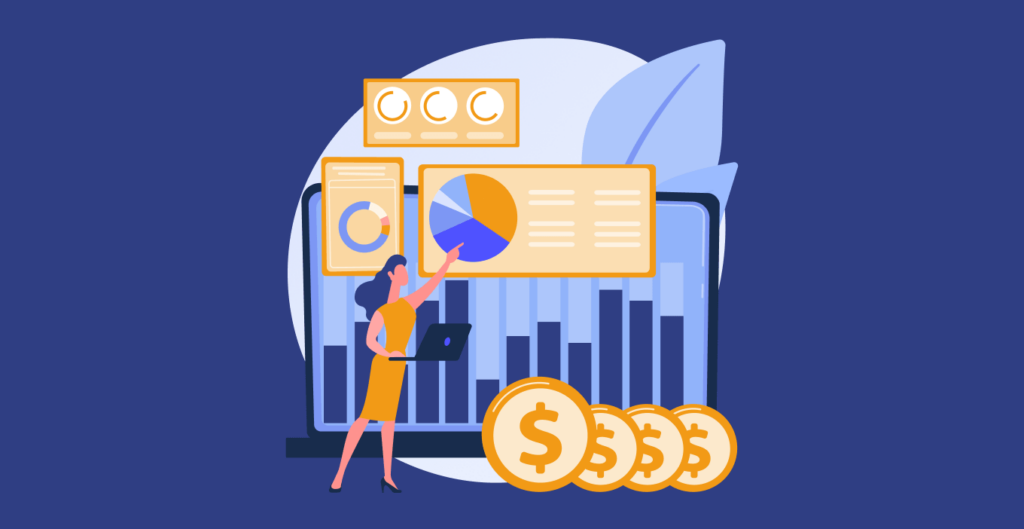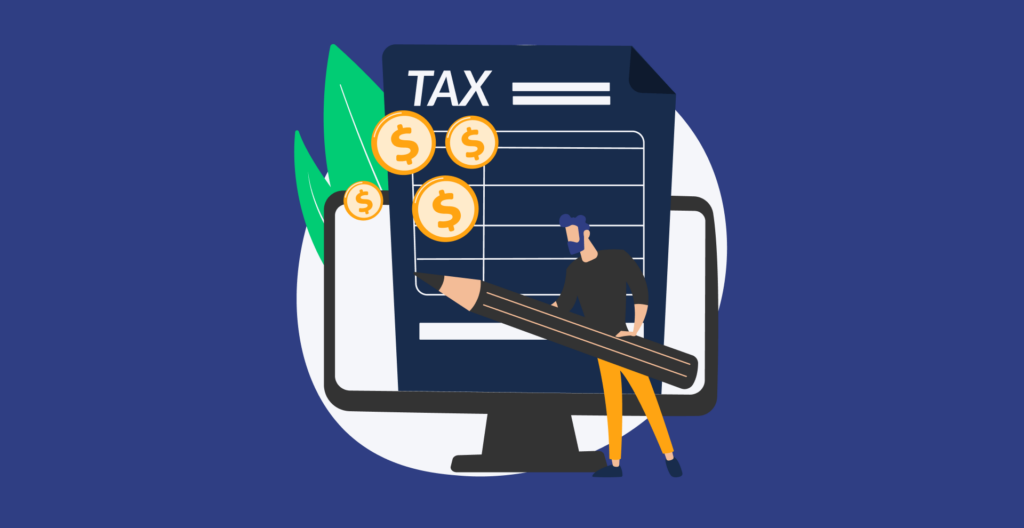Are you tired of sifting through endless options for the best real estate accounting software in 2024? Wondering which one will streamline your financial tasks seamlessly? In this guide, we unveil the top accounting software tailored to meet the unique needs of real estate professionals. Say goodbye to manual processes and hello to efficiency with these cutting-edge solutions.
Real estate accounting software plays a crucial role in efficiently managing financial transactions and tracking expenses in the real estate industry. It helps streamline processes, ensuring accurate calculations and compliance with regulations.
Utilizing real estate accounting software enables timely reporting, aiding in decision-making processes for property investments. It also enhances transparency by providing detailed insights into financial data.
- QuickBooks Real Estate: Offers comprehensive features for property management, lease tracking, and financial reporting.
- Buildium: Tailored for property managers, it automates tasks like rent collection and maintenance requests.
- AppFolio Property Manager: Provides end-to-end solutions for property management, accounting, and marketing.
- Yardi Voyager: Ideal for large-scale operations, offering tools for lease management and financial reporting.
- MRI Software: Known for its advanced analytics capabilities and integrated property management solutions.
Top Software Overview

QuickBooks Online
QuickBooks Online is a popular choice for real estate accounting due to its user-friendly interface and robust features. It offers financial reporting, expense tracking, and invoicing capabilities. However, it may lack some advanced functionalities needed for complex real estate transactions.
STRATAFOLIO
STRATAFOLIO is tailored specifically for real estate professionals, offering property management, lease tracking, and investment analysis tools. Its integration with major accounting systems streamlines financial processes. However, it may be more suitable for larger real estate portfolios.
Baselane
Baselane provides comprehensive accounting solutions for real estate businesses, including budgeting, forecasting, and cash flow management features. Its automation tools help streamline repetitive tasks, improving efficiency. However, it may have a steeper learning curve for beginners.
Wave
Wave is a free accounting software that offers basic features like income and expense tracking, invoicing, and reporting. It is ideal for small real estate businesses looking for a cost-effective solution. However, it may lack advanced functionalities required by larger enterprises.
Realtyzam
Realtyzam is designed for real estate agents and brokers, offering features such as commission tracking, mileage logging, and expense management. Its mobile app allows users to manage their finances on the go. However, it may not cater to the needs of property managers or investors.
Buildium
Buildium is a comprehensive property management software that includes accounting, leasing, and maintenance tracking features. It caters to both residential and commercial real estate properties. However, its pricing may be higher compared to other options.
Zoho Books
Zoho Books offers bank reconciliation, inventory management, and project billing features suitable for real estate businesses. Its customizable templates and reports provide insights into financial performance. However, it may require additional integrations for specific real estate functions.
Why You Can Trust Fit Small Business
Editorial independence
Fit Small Business ensures editorial independence by maintaining a strict separation between content creation and advertising. This separation guarantees that our reviews and recommendations are unbiased. We prioritize providing accurate information to assist small businesses in making informed decisions.
Our team of experts conducts thorough research to deliver reliable and objective content. We strive to offer well-researched articles that small business owners, professionals, and unique businesses can trust. Fit Small Business is committed to delivering high-quality, up-to-date information to help small companies thrive.
- Unbiased reviews and recommendations
- Separation of content creation from advertising
Reliable, well-researched content
At Fit Small Business, we pride ourselves on offering reliable and well-researched content tailored to the needs of small businesses and sized enterprises. Our team of experts rigorously evaluates software options to provide accurate insights for small business professionals. We aim to be a trusted resource for small business owners seeking the best real estate accounting software options for 2024.
- Thorough research process
- Tailored content for small businesses
Quick Comparison of Top Software
Comparison table: pricing, free trials, users included
Real estate accounting software plays a crucial role in managing financial transactions and data for real estate businesses. To make an informed decision, comparing the pricing, free trial options, and users included in different software is essential.
- Pricing: When selecting real estate accounting software, consider the cost implications. Some software may offer tiered pricing plans based on the features included.
- Free Trials: Look for software that provides free trials to test its functionality and suitability for your business before committing to a purchase.
- Users Included: Consider the number of users allowed on each software platform to ensure it can accommodate your team size effectively.
In 2024, real estate professionals are spoilt for choice with various accounting software options tailored to their needs. Each software has its unique features and benefits, making it crucial to assess which one aligns best with your business requirements.
- Pricing:
- Pros: Transparent pricing structures help in budget planning.
- Cons: Higher-priced options may have advanced features that small businesses might not need.
- Free Trials:
- Pros: Allows users to test the software’s capabilities without financial commitment.
- Cons: Limited time duration for free trials may not be sufficient to fully explore all features.
- Users Included:
- Pros: Scalable options that can accommodate growing teams.
- Cons: Restrictions on the number of users may require additional fees for more access.
Detailed Software Reviews
QuickBooks Online
Features
QuickBooks Online offers comprehensive accounting features for real estate businesses, including expense tracking and invoicing capabilities. It provides customizable reporting tools for better financial insights.
- Customizable reporting tools
- Expense tracking features
- Invoicing capabilities
Pricing
The pricing for QuickBooks Online varies based on the plan selected, starting from a basic package suitable for small real estate firms to more advanced options for larger enterprises.
STRATAFOLIO
Features
STRATAFOLIO stands out for its property management tools, enabling users to track leases, expenses, and maintenance tasks efficiently. It also offers robust financial reporting features.
- Property management tools
- Lease and expense tracking
- Robust financial reporting
Pricing
STRATAFOLIO’s pricing is tailored to the needs of real estate professionals, with options for individuals as well as enterprise solutions.
Baselane
Features
Baselane focuses on streamlining accounting processes with automated workflows and user-friendly interfaces. It includes features for budgeting and forecasting.
- Automated workflows
- User-friendly interfaces
- Budgeting and forecasting tools
Pricing
Baselane offers competitive pricing plans suitable for small to medium-sized real estate businesses, making it an affordable choice.
Bottom Line
Business Edition
For entrepreneurs and small businesses, the business edition of real estate accounting software offers tailored features to meet specific business needs. It streamlines cash management and enhances cash flow tracking.
The business edition provides tools for efficient bill pay processes, ensuring timely payments and improved financial operations. It is designed to cater to the unique requirements of small enterprises in the real estate industry.
Industry Leader
Opting for a renowned industry leader in real estate accounting software guarantees reliability and top-notch performance. Leading providers offer cutting-edge solutions to optimize financial management for real estate professionals.
Choosing an industry leader ensures access to the latest technological advancements and best practices in accounting software, staying ahead in the competitive real estate market.
Summary of key points
Key Features
Real estate accounting software for 2024 offers advanced automation for financial management, integrated reporting tools, and streamlined invoicing processes. These features enhance efficiency and accuracy in accounting tasks.
The software provides real-time data updates, enabling users to make informed decisions promptly. It ensures compliance with industry regulations and security protocols to safeguard sensitive financial information.
Pros and Cons
Pros:
- Increased productivity
- Enhanced accuracy
- Improved data security
Cons:
- Initial setup complexity
- Potential integration issues
Business Insights
Real estate accounting software offers valuable insights into financial performance through detailed reports and analytics. Users can track key metrics such as cash flow, profit margins, and property expenses to make strategic business decisions.
By leveraging these insights, real estate professionals can identify trends, forecast future financial outcomes, and optimize their operations for maximum profitability.
Key Accounting Tools
Leading real estate accounting software solutions in 2024 include robust tools such as general ledger management, accounts payable/receivable, and budgeting modules. These tools streamline financial processes and ensure accurate record-keeping for businesses in the real estate sector.
Choosing the right software based on needs

Tailoring to varied business needs
When selecting real estate accounting software for 2024, it’s crucial to consider varied business needs. Different companies have unique requirements, so look for software that can be customized to suit unique business needs. Ensure the software offers features like customizable reporting tools and flexible integrations.
Analyzing business automation software
Look for real estate accounting software that includes business automation software capabilities. Automation streamlines processes, reduces manual errors, and increases efficiency. Features such as automated data entry, invoice processing, and financial report generation can significantly improve workflow productivity.
Integrating with essential business tools
Choose software that seamlessly integrates with essential business tools like CRM systems, project management platforms, and payroll software. Integration ensures smooth data flow between different applications, enhancing overall operational efficiency. Verify compatibility with existing tools to avoid any disruptions in daily operations.
FAQs
How to choose the best software
When selecting the best real estate accounting software, consider factors like ease of use, features, and pricing. Look for customizable options and scalability to meet your business needs.
- Pros: Tailored solutions, scalability, user-friendly interfaces
- Cons: Cost may vary, learning curve for new features
Integration with current systems
Ensure that the chosen software can seamlessly integrate with your current systems such as CRM software or property management tools. This integration streamlines processes and prevents data duplication.
- Key Information: Compatibility with existing systems is crucial
- Examples: QuickBooks, Xero, FreshBooks
Availability of mobile apps
Opt for software that offers mobile app accessibility for on-the-go access to financial data. Mobile apps enable real estate professionals to manage transactions and track expenses conveniently.
- Benefits: Increased flexibility, real-time updates
- Considerations: Security measures for mobile access
Conclusion

Recap of the importance of choosing the right software
Efficiency Boost
Selecting the best real estate accounting software for 2024 is crucial for maximizing efficiency within your company. This software streamlines financial processes, saving time and effort.
Investing in the right company software can significantly reduce manual tasks, allowing your team to focus on strategic financial decisions rather than data entry.
Cost-Effectiveness
By choosing the appropriate software, you can avoid unnecessary expenses associated with incorrect data entry or outdated systems. This saves money in the long run.
Opting for user-friendly software reduces the learning curve for employees, ensuring a smooth transition and minimal disruptions to daily operations.
Enhanced Data Management
The best real estate accounting software options for 2024 incorporate advanced data science capabilities. These features enable accurate forecasting and analysis, empowering businesses to make informed decisions.
Implementing the right software solution enhances data security, protecting sensitive financial information from potential breaches.
Encouragement to evaluate options based on specific requirements
Screening
When evaluating real estate accounting software options, screening is crucial. Consider factors like scalability, user-friendliness, and integration capabilities. Screening helps in narrowing down choices to find the best fit for your business.
Guidance
Seek guidance from industry experts or online reviews to understand the strengths and weaknesses of different software. Guidance can provide valuable insights into how well a particular software aligns with your specific needs.
Final Remarks
In your quest for the best real estate accounting software, you’ve gained a comprehensive understanding of the top options available. By evaluating your specific needs against the features offered by each software, you can make an informed decision that aligns with your business requirements. Remember, choosing the right software is crucial for streamlining your accounting processes, enhancing efficiency, and ultimately boosting your bottom line.
Take the time to carefully assess each software based on the insights provided here. Your choice will not only impact your day-to-day operations but also contribute to the long-term success of your real estate business. Make a well-informed decision today to set yourself up for financial management excellence in 2024 and beyond.
Frequently Asked Questions
How can real estate accounting software benefit my business?
Real estate accounting software streamlines financial management, automates tasks like rent collection and expense tracking, provides accurate reporting for better decision-making, and ensures compliance with industry regulations.
What features should I look for in real estate accounting software?
Look for features like property management tools, lease tracking, rent collection automation, expense tracking, financial reporting, integration capabilities with other systems, scalability to accommodate growth, and compliance with industry-specific regulations.
Is cloud-based real estate accounting software secure?
Yes, reputable cloud-based real estate accounting software providers use advanced security measures like encryption, regular data backups, access controls, and compliance certifications to ensure the safety of your financial data.
How can I determine the best real estate accounting software for my specific needs?
Assess your business requirements such as property portfolio size, number of users, budget constraints, integration needs, and regulatory compliance. Then compare software options based on these criteria to find the best fit.
Can real estate accounting software help me save time and reduce errors?
Yes, by automating repetitive tasks, providing accurate financial data in real-time, and minimizing manual data entry errors, real estate accounting software can significantly increase efficiency and accuracy in your financial operations.

